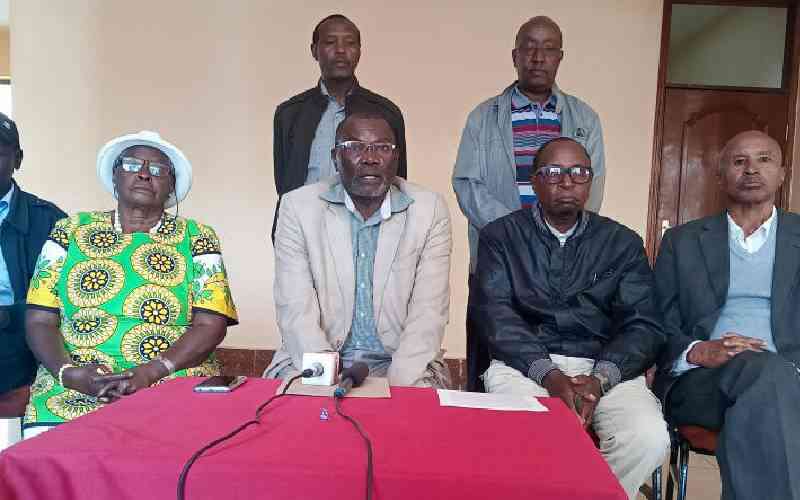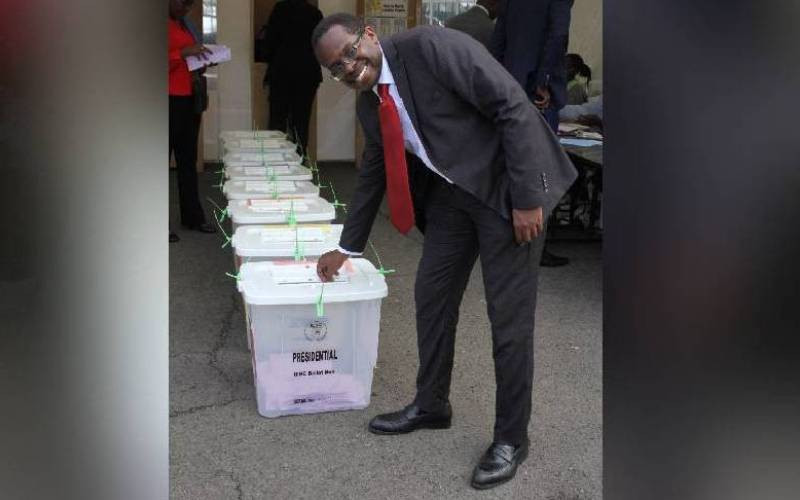Pyrethrum Processing Company of Kenya (PPCK) pensioners, led by their chairman Samuel Ainda (centre) address the press in Nakuru on May 9, 2023, over their pending arrears. [Kennedy Gachuhi, Standard].
×
The Standard e-Paper
Home To Bold Columnists






